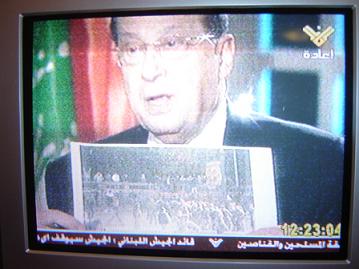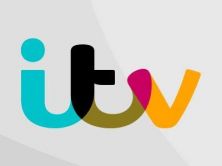
Sharp eyed bloggers in 2007 discovered that the picture of the soldiers and the militant above, were two seperate photos composited into one.
A flagrant incident of state sanctioned fauxtography propoganda by Hezbollah had been exposed thanks to the watchful eyes of Lebanese bloggers, in 2007.
According to Michael J. Totten’s blog, The Middle East Journal, the picture purports to show a Lebanese militant ready to open fire on Lebanese soldiers.
Not only did the bloggers expose that the picture of the soldiers and the militant were two separate photos meshed into one, but they were able to prove the man shown was a member of Hezbollah and that the cross appearing on his uniform was added to the picture as well. At least one of the photos was taken from the Associated Press.
An article in the Lebanon’s Daily Star said Lebanese Force’s MP Antoine Zahra decried the use of fauxtography, saying “doctored photos are being used to distort the LF’s image in the public eye.” He also said that the opposition should not “use any document before making sure it is credible.”
This incident comes on the heels of other (unrelated) incidents of wartime fauxtography, including one which was the subject of a Stinky Journalism report in which the Sri Lankan government was exposed seemingly disparaging their opposition as hoarding a weapons stockpile. The Sri Lankan denies the charges claiming they tampered with a real photograph for “security reasons.”
While several less than reputable media outlets and individuals misuse of Photoshop has invoked the public’s ire of late, the idea of misleading photographs such as these being state sanctioned is chilling. Instances such as these are evidence of a lack of respect for a free press. If trusted sources, such as governments, misuse their technological resources in this way, it will never serve peace. Meet Propaganda 2.0.





